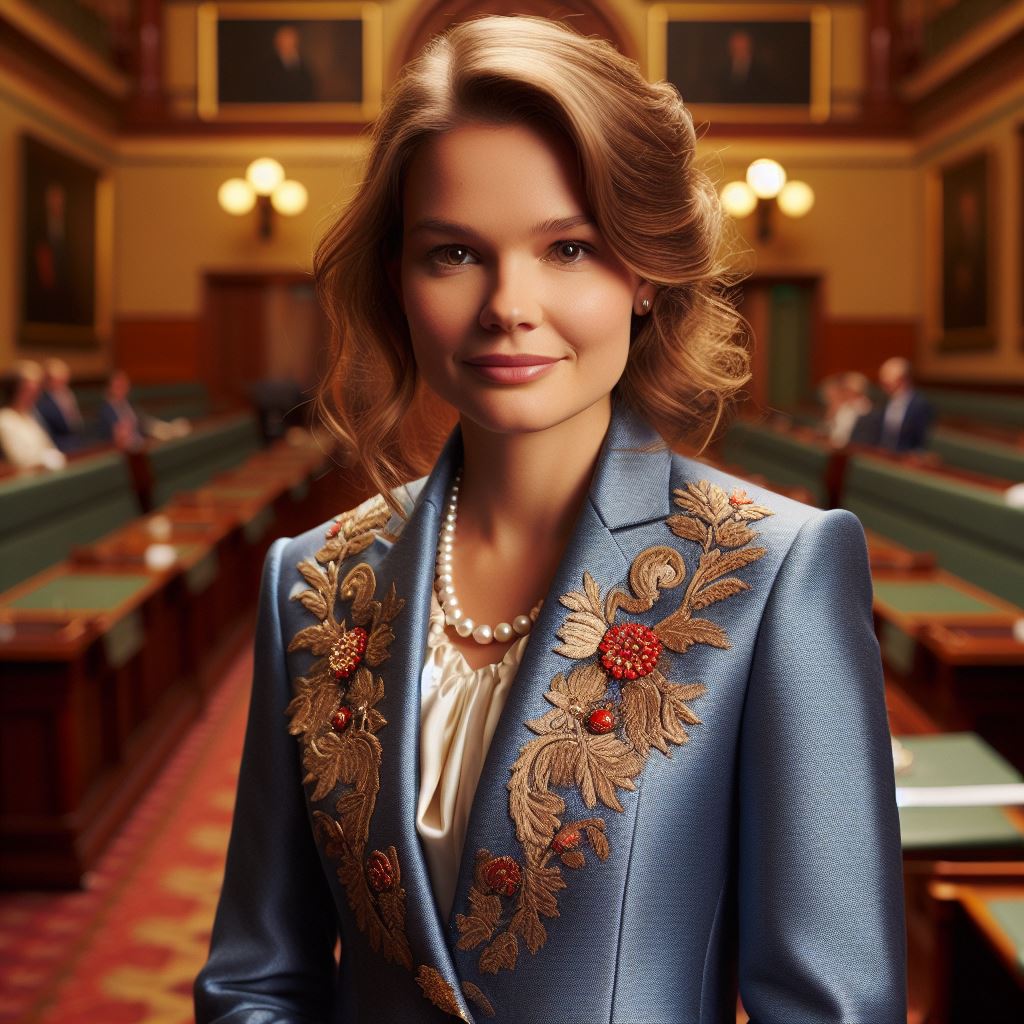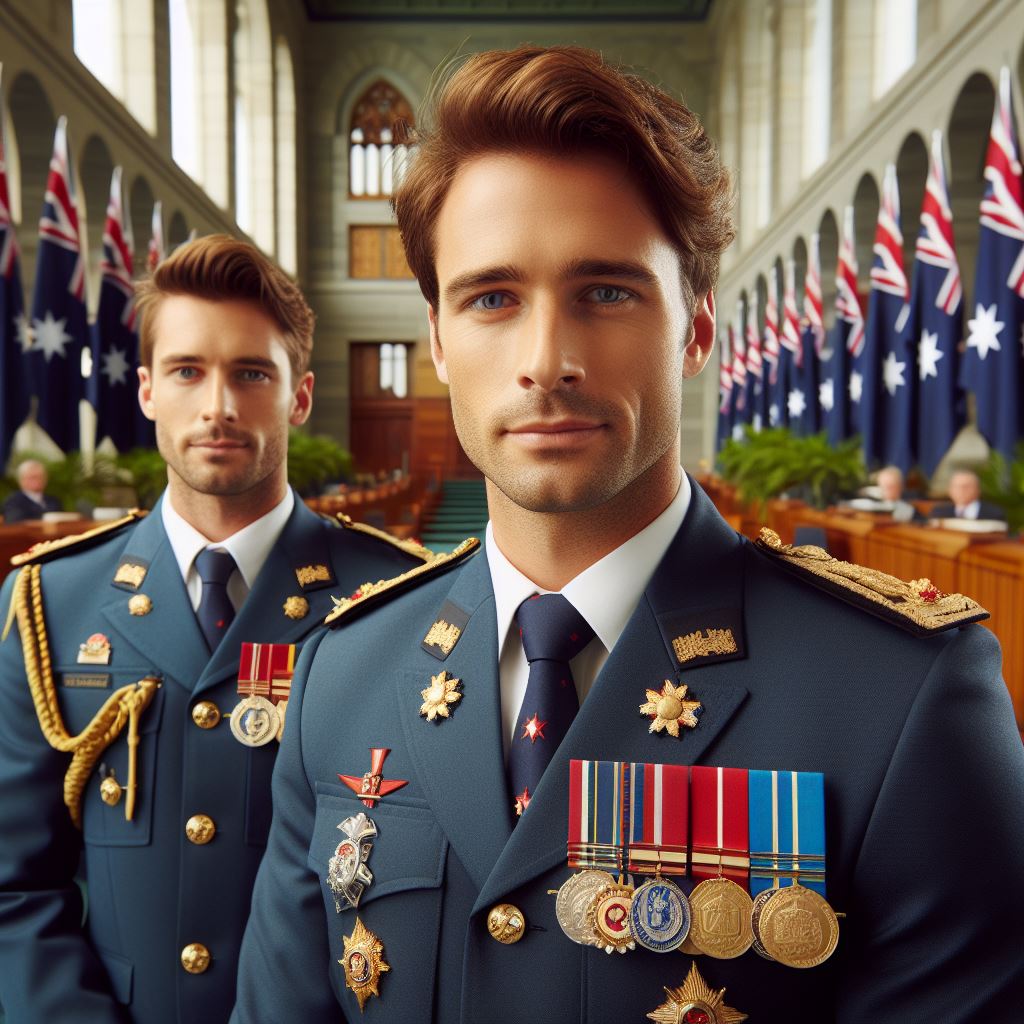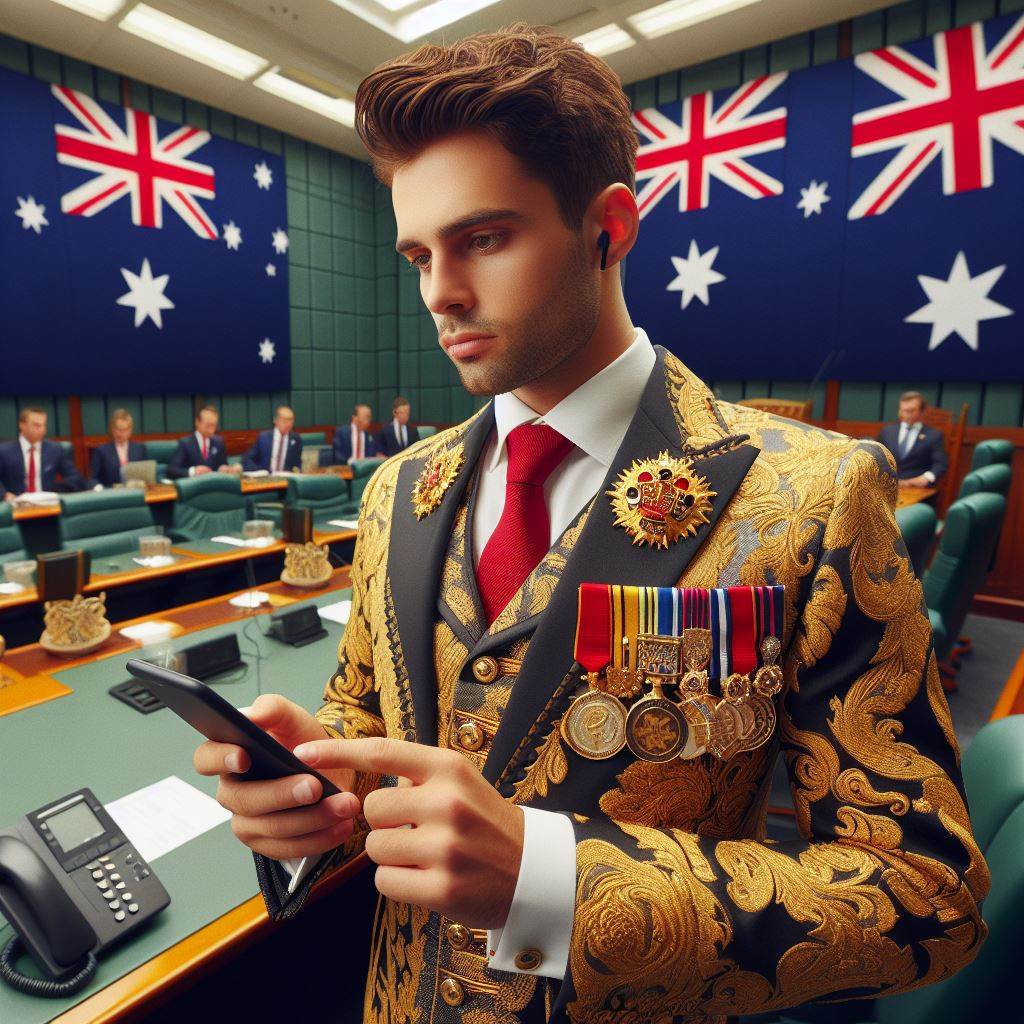Introduction
The significance of public opinion in politics cannot be underestimated. The connection between public opinion and politicians is a complex and intricate dance.
Public opinion plays a crucial role in the world of politics.
It has the power to shape political discourse, influence policy decisions, and determine the fate of politicians.
Understanding and catering to public opinion is a delicate balance that politicians must master.
The relationship between public opinion and politicians is a dynamic one.
Politicians rely on public opinion to gauge their popularity and make strategic decisions.
They often monitor polls and surveys to understand the sentiment of the public and adjust their positions accordingly.
Public opinion can act as a compass, guiding politicians on the path they should take.
However, public opinion is not a straightforward entity.
It can be fickle, influenced by numerous factors such as media coverage, social trends, and personal beliefs.
Politicians must navigate through these complexities, attempting to strike a balance between following public opinion and maintaining their own core values.
Moreover, politicians also have the ability to shape public opinion.
Through effective communication and persuasion, politicians can influence how the public perceives certain issues or policies.
This can be through speeches, public appearances, or even social media engagement.
Public opinion is not merely a one-way street but a two-way interaction between politicians and the public.
Basically, public opinion holds significant weight in politics.
Politicians must be attuned to the sentiments of the public and adapt their strategies accordingly.
The relationship between public opinion and politicians is a complex dance, with both sides influencing and being influenced by each other.
This dance requires skill, judgment, and a deep understanding of the pulse of the public.
Understanding Public Opinion
Definition of public opinion
Public opinion refers to the collective thoughts, beliefs, and attitudes of the general population on a particular issue or topic.
Factors that shape public opinion
- Media influence: The media plays a significant role in shaping public opinion through its coverage and presentation of information.
- Personal experiences: Individuals’ personal experiences and interactions can shape their opinions and influence their views on various subjects.
- Socioeconomic background: Factors such as education, income level, and social class can influence how individuals form their opinions.
Role of public opinion in democratic societies
In democratic societies, public opinion guides decision-making for politicians and policymakers.
It acts as a check on political power, ensuring accountability.
Public opinion shapes policies, promoting citizen engagement in the political process.
Politicians need to understand and respond to public opinion to govern effectively.
By doing so, they establish trust and legitimacy among the electorate.
Navigating the complex dance between public opinion and politicians requires a delicate balance.
Politicians must monitor public opinion through surveys, town hall meetings, and social media interactions.
They should be willing to adapt policies based on changing public dynamics.
Public opinion, however, isn’t always a reliable indicator of moral or ethical correctness.
Politicians must exercise judgement and expertise for informed decisions that benefit society, even if unpopular.
The intricate relationship between public opinion and politicians highlights democratic governance’s complex nature.
While public opinion shapes decisions, politicians must exhibit leadership and strategic thinking for effective problem-solving.
Understanding and respecting public opinion, alongside considering their own expertise, allows politicians to fulfill their roles and contribute to society’s betterment.
Read: Top Skills Needed in Government Jobs
Politicians and Public Opinion
Politicians as Representatives of the People
In democratic systems, politicians are not merely officeholders; they are entrusted representatives, bridging the gap between public sentiment and governance decisions.
This dynamic interaction is the cornerstone of effective democratic functioning.
Balancing Public Opinion with Personal Beliefs
As representatives, politicians face the intricate challenge of harmonizing public opinion with their personal convictions.
While aligning with the majority is vital, maintaining authenticity to one’s values is equally essential.
Strategies Politicians Use to Gauge Public Opinion
Opinion Polls
Opinion polls serve as indispensable tools, offering quantitative insights into public sentiments.
Politicians utilize these surveys to discern prevailing opinions on diverse issues, guiding them in crafting policies aligned with popular views.
Focus Groups
Complementing quantitative data, focus groups provide a qualitative dimension.
Engaging directly with constituents from diverse backgrounds, politicians gain nuanced perspectives that quantitative metrics might overlook.
This personal interaction aids in understanding constituents’ concerns more deeply.
Social Media Engagement
In the digital era, social media platforms have become powerful arenas for politicians to gauge public opinion in real-time.
By actively participating in conversations on platforms like Twitter and Facebook, politicians receive immediate feedback, fostering direct connections with constituents.
Impact of Public Opinion on Political Decisions
The influence of public opinion extends far beyond mere consideration—it is a decisive force shaping political decisions.
Politicians, cognizant of the prevailing sentiments, align policies with the public’s views.
This alignment is vital for maintaining trust, legitimacy, and achieving successful governance.
As politicians engage in this complex dance, they encounter inherent challenges.
Public opinion is dynamic, susceptible to rapid shifts influenced by various factors.
Politicians must exhibit agility, adapting strategies swiftly to remain attuned to evolving sentiments and effectively represent their constituents.
Navigating this delicate dance involves more than just aligning with popular sentiments.
Politicians must make nuanced judgments, distinguishing between popular desires and ethical correctness.
This discernment is vital to ensure that decisions not only resonate with popular opinion but also uphold moral integrity and contribute to the broader societal welfare.
Generally, the relationship between politicians and public opinion is intricate, encompassing the roles of representatives, the delicate balance between public sentiment and personal beliefs, and the strategic use of tools like opinion polls, focus groups, and social media engagement.
Understanding the impact of public opinion on political decisions underscores its significance in the democratic governance landscape, emphasizing the continuous effort required to strike the right balance.
Read: Public Service Paths: Your Guide to Success
Complexities in the Dance
Diverse nature of public opinion
Public opinion is a complex and dynamic entity that is constantly evolving and changing. Public opinion is not homogeneous; it encompasses a wide range of perspectives, beliefs, and values.
- Public opinion is influenced by factors such as age, gender, education, socio-economic status, and cultural background.
- There can be conflicting opinions within different demographic groups, making it challenging to find common ground.
- It is essential for politicians to understand this diversity and consider various viewpoints when formulating policies.
- Failure to recognize and account for the diverse nature of public opinion can alienate large segments of the population.
Challenges politicians face in interpreting public opinion
Politicians grapple with the difficulty of accurately interpreting and understanding the diverse range of public opinions.
- Public opinion is not always explicitly expressed; it can be subtle and nuanced, requiring careful analysis.
- Politicians must decipher public opinion from a multitude of sources, such as surveys, social media, and informal interactions.
- There is a risk of misinterpreting public sentiment, leading to misguided policies or actions that do not align with public preferences.
- The challenge lies in determining which voices represent the majority and which opinions are outliers.
The role of media in shaping public opinion
Media plays a significant role in shaping public opinion, influencing the way people perceive and understand political issues.
- Media outlets have a significant influence on public opinion through their ability to frame and present political issues.
- Biases in reporting and editorial decisions can shape how the public perceives certain politicians or policies.
- Media has the power to prioritize certain narratives, amplify certain voices, and marginalize others.
- Politicians must navigate this landscape, understanding how media influences public opinion and adapt their strategies accordingly.
Public opinion vs. policy-making
The challenge lies in striking a balance between public opinion and the need to make effective policy decisions.
Your Personalized Career Strategy
Unlock your potential with tailored career consulting. Get clear, actionable steps designed for your success. Start now!
Get Started- While politicians should consider public opinion when making policy decisions, it is not the sole factor to consider.
- Public opinion can sometimes be uninformed or driven by emotions rather than pragmatic considerations.
- Politicians must balance the desires of the public with expert advice, data, and long-term consequences.
- Making decisions solely based on public opinion can lead to short-sighted policies that do not address underlying issues.
Adapting to changing public opinion
Politicians must be adaptable and responsive to shifts in public opinion, as ignoring or misjudging it can lead to consequences.
- Public opinion is not static; it can change rapidly in response to new information or evolving societal attitudes.
- Politicians must be responsive and adaptable, continually assessing and gauging public sentiment.
- They should be open to revisiting their positions and policies in light of shifting public opinion.
- Building trust and engaging in dialogue with the public fosters a better understanding of evolving opinion.
- Adapting to changing public opinion requires a delicate balance between leadership and responsiveness.
In short, the dance between public opinion and politicians is a complex one.
The diverse nature of public opinion, the challenges in interpreting it, the role of media in shaping it, the balancing act between public opinion and policy-making, and the need to adapt to changing opinions all contribute to the intricacies of this relationship.
Politicians must navigate these complexities with sensitivity, inclusivity, and a commitment to effective governance.
Read: Day in the Life of an Aussie Public Servant

Case Studies
In the realm of politics, public opinion plays a vital role in shaping the decisions and actions of politicians.
This relationship between public opinion and politicians is complex, as it involves politicians trying to align their policies and actions with the ever-changing sentiments of the public.
In this section, we will explore three case studies that highlight the dynamics between public opinion and politicians.
Example 1: Public opinion shifting on environmental policies
- Politicians responded to the changing public opinion on environmental policies by implementing stricter regulations.
- The consequences of such political decisions were a decrease in pollution and an increase in sustainable practices.
One notable case study revolves around the shifting public opinion on environmental policies.
Historically, environmental concerns were not a primary focus for politicians.
However, as public awareness about climate change and its consequences grew, so did the demand for stronger environmental regulations.
In response, politicians had to adapt and take action.
They recognized the need to address public concerns and began implementing stricter regulations on pollution, promoting renewable energy sources, and advocating for sustainability.
These actions were driven by politicians’ acknowledgement of the importance of gaining public support and staying in touch with shifting public opinion.
The consequences of these political decisions have been significant.
Thanks to the tighter regulations and sustainable practices, pollution levels have decreased in various sectors.
Additionally, the implementation of renewable energy sources has led to a reduction in carbon emissions, positively impacting the environment.
Therefore, by aligning their actions with public opinion, politicians have achieved positive outcomes in terms of environmental sustainability.
Example 2: Public opinion on immigration
- Politicians faced numerous challenges in dealing with public opinion on immigration, including balancing national security concerns with humanitarian values.
- Political strategies employed to address concerns involved implementing comprehensive immigration reforms and increasing border security measures.
Another case study focuses on public opinion regarding immigration.
Immigration has always been a contentious issue, with politicians often facing challenges when attempting to address the concerns of the public while balancing humanitarian values.
Politicians must consider national security concerns, economic implications, and societal integration when formulating immigration policies.
The challenge lies in finding a balance that satisfies the public’s desire for security and economic stability while upholding the principles of inclusivity and compassion.
To address these concerns, politicians employ various political strategies.
Comprehensive immigration reforms that address border control, employment opportunities, and pathways to citizenship have been proposed.
Additionally, politicians have increased border security measures to address public worries about illegal immigration.
The strategies employed by politicians aim to demonstrate their responsiveness to public opinion while still considering the complexities of immigration.
By finding a middle ground through strategic policy-making, politicians can navigate the dynamics between public opinion and the need for comprehensive immigration reform.
Example 3: Politicians’ response to public opinion during a crisis
- During a crisis, politicians need to effectively respond to public opinion to maintain trust and ensure public safety.
- Political actions can include swift decision-making, clear communication, and providing necessary resources to address the crisis.
During a crisis, such as a natural disaster or a pandemic, public opinion plays a crucial role in shaping politicians’ responses.
In such situations, the public looks to leaders for guidance, support, and effective decision-making.
Politicians must swiftly respond to public sentiment during a crisis to maintain trust and ensure public safety.
These responses can include prompt decision-making, transparent communication, and allocating necessary resources to address the crisis effectively.
By closely monitoring public opinion, politicians can adapt their strategies and actions accordingly, ensuring that their response aligns with the concerns and needs of the affected population.
Most importantly, the relationship between public opinion and politicians is an intricate dance that constantly evolves.
The case studies presented here demonstrate politicians’ need to remain attentive to the shifting tides of public sentiment and adapt their actions accordingly.
By understanding and addressing public concerns, politicians can navigate this complex dance, ultimately leading to more effective governance.
Read: How Technology Aids Aussie Firefighters
Delve into the Subject: Diplomatic Roles: What Do They Entail?
Conclusion
Recap of the Complex Dance
As we conclude our exploration, the intricate dance between public opinion and politicians emerges as a nuanced ballet.
Elected officials navigate this delicate choreography, striving to represent constituents while staying true to personal convictions.
Importance of Understanding Public Sentiment
The importance of comprehending public sentiment cannot be overstated. For politicians, it is not merely a task but a responsibility.
Establishing trust, maintaining legitimacy, and ensuring effective governance hinge on their ability to interpret and respond to the prevailing public mood.
The Evolving Nature of Public Opinion
Public opinion is not static; it’s a living entity that evolves.
This evolution is a driving force shaping the political landscape.
Politicians must embrace adaptability, recognizing that the pulse of public sentiment influences policies, decisions, and the very fabric of democratic governance.
In this intricate interplay, the relationship between politicians and public opinion is dynamic and symbiotic.
The dance is not just about aligning with prevailing sentiments but also about leading with strategic foresight.
Politicians must not only interpret public opinion but anticipate and address the evolving needs and concerns of a diverse electorate.
As the political landscape continues to shift, the successful politician will be one who can not only follow the rhythm of current public opinion but also foresee the changing beats.
This foresight ensures a proactive rather than reactive engagement, fostering a more responsive and inclusive governance model.
In the end, the dance between public opinion and politicians is an ongoing performance, shaped by the evolving nature of societal sentiments.
The resonance of this dynamic interaction echoes in the policies, decisions, and the very essence of democratic governance.
Recognizing this complexity allows for a more informed and engaged political discourse, contributing to a stronger and more adaptive democratic system.




